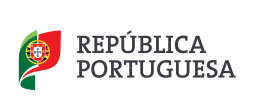Academic Services
sa.porto@ucp.pt
Student Care
jssilva@ucp.pt
+351 935 370 331
Administrative Services
+351 226 196 267
Admission Support
candidaturas.porto@ucp.pt
+351 939 450 000
|
Área de estudos |
Artes |
|
Grau de ensino |
3.º Ciclo |
|
Regime |
Pós-Laboral |
|
ECTS |
240 |
|
Acreditações |
A3ES - número de processo ACEF/1516/0900777 DGES - Registo inicial: R/A-Cr 191/2010 de 22-11-2010 |
| Coordenação | Eduarda Vieira evieira@porto.ucp.pt |
The PhD in Conservation and Restoration of Cultural Heritage was created with the ambition to promote the development of advanced research in the field of conservation of cultural heritage, allowing the pursuit of advanced studies for conservators-restorers, architects, civil engineers, archaeologists, art historians or other professionals in the field of heritage and the arts.
|
Área de estudos |
Artes |
|
Grau de ensino |
3.º Ciclo |
|
Regime |
Pós-Laboral |
|
ECTS |
240 |
|
Acreditações |
A3ES - número de processo ACEF/1516/0900777 DGES - Registo inicial: R/A-Cr 191/2010 de 22-11-2010 |
| Coordenação | Eduarda Vieira evieira@porto.ucp.pt |
|
Área de estudos |
Artes |
|
Grau de ensino |
3.º Ciclo |
|
Regime |
Pós-Laboral |
|
ECTS |
240 |
|
Acreditações |
A3ES - número de processo ACEF/1516/0900777 DGES - Registo inicial: R/A-Cr 191/2010 de 22-11-2010 |
| Coordenação | Eduarda Vieira evieira@porto.ucp.pt |




